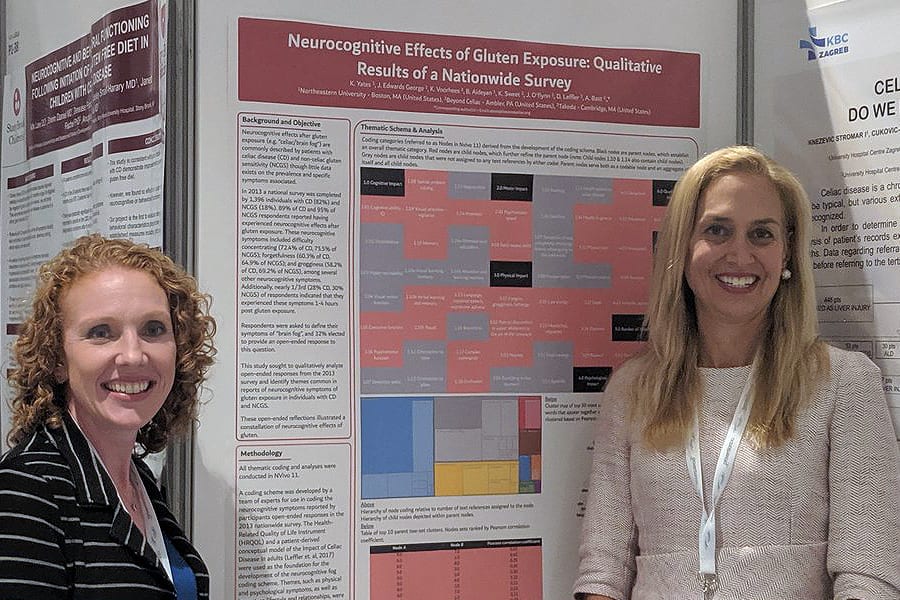Beyond Celiac research outlines new insight into related symptoms and impact on quality of life

By Amy Ratner, Medical and Science News Analyst
A step toward better understanding of brain fog and other neurocognitive symptoms in celiac disease and how they affect day-to-day life is described in research Beyond Celiac presented today at the 2019 International Celiac Disease Symposium in Paris.
| Neurocognitive: Having to do with the ability to think and reason, including being able to concentrate, remember things, process information, learn, speak, and understand. |
| Brain fog: A feeling that the processes of thinking, understanding, and remembering are not working as they should |
The poster presentation details the analysis of nearly 500 open-ended survey responses in which those who have celiac disease and nonceliac gluten sensitivity (NCGS) described neurocognitive symptoms after gluten exposure.
The responses were part of a larger survey of nearly 1,400 patients who identified difficulty concentrating, forgetfulness and grogginess, often one to four hours after being exposed to gluten.
The portion of the survey in which patients described symptoms in their own way is the basis of the new analysis. Cognitive, psychological and quality of life symptoms were most commonly mentioned and emerged as themes.
The research was done by Beyond Celiac, Northeastern University and Takeda, a pharmaceutical company, and presented in Paris by Alice Bast, Beyond Celiac CEO and Jessica Edward George, PhD, program director of PhD counseling psychology at Northeastern.
“This study highlights the burden of celiac disease. The gluten-free diet is a challenge, and the impact of accidental exposure is real and interferes with our community members’ ability to live their best lives,” noted Bast.
“These open-ended reflections illustrated a constellation of neurocognitive effects of gluten,” the researchers wrote. These included spatial problem solving, detachment, depression, anxiety, irritability, low energy, impaired speech and problems with sleep, memory and orientation to time and place.
Cognitive impact and quality of life were found to be correlated in the analysis, suggesting the two are related.
| Neurobehavioral: the relationship between the action of the nervous system and how someone behaves |
The coding categories developed in the analysis could make it easier for healthcare providers and patients to describe neurocognitive symptoms. They could also lead to improved targeted treatment of these symptoms and their link with gluten-free diet adherence and gluten exposure, researchers wrote. This could provide insight into the impact of neurobehavioral symptoms on quality of life. More research needs to be done on brain fog and its impact on people with celiac disease and NCGS.
Opt-in to stay up-to-date on the latest news.
Yes, I want to advance research No, I'd prefer not to